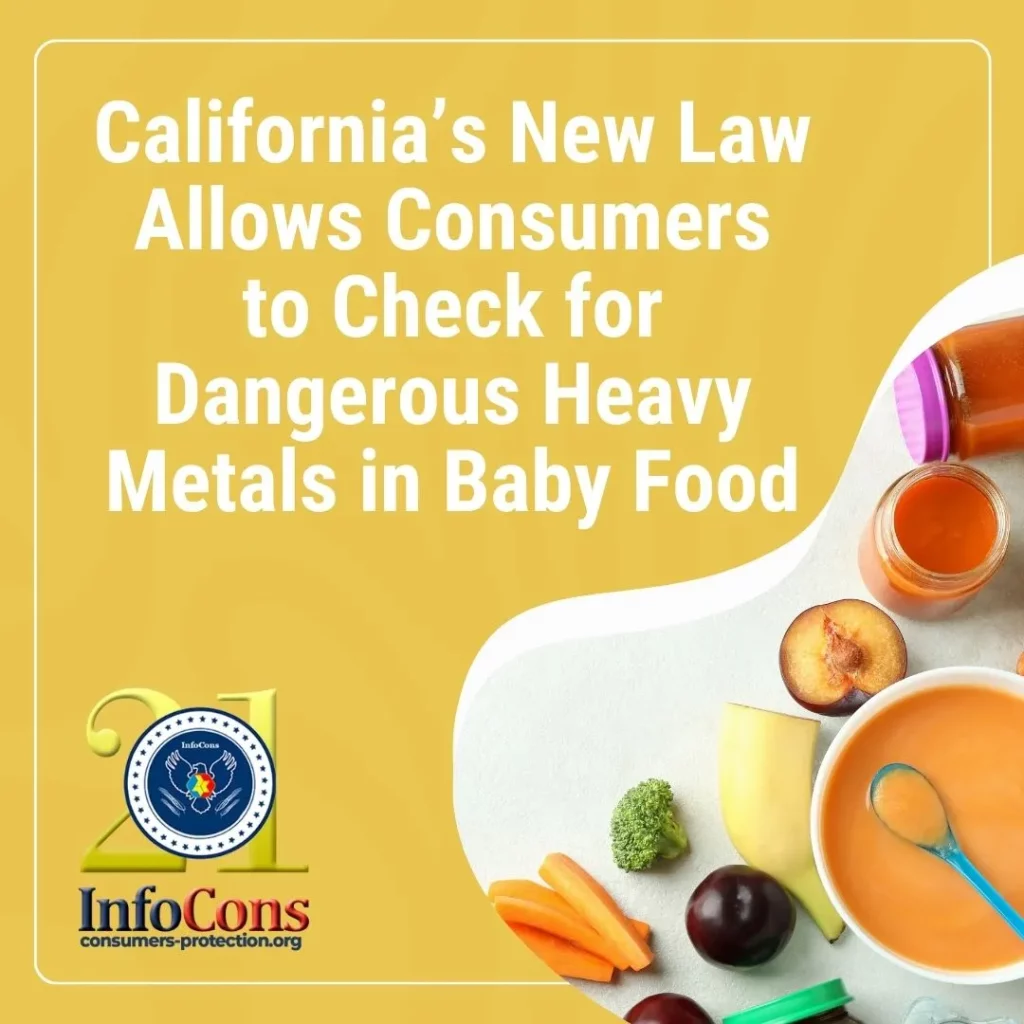
Parents across the U.S. have long been concerned about the presence of heavy metals in baby food. With young children being especially vulnerable to these toxic substances, ensuring safe and nutritious meals has become a priority. A new California law, known as the Baby Food Safety Act of California (AB 899), has set a new standard for transparency and accountability, offering parents critical information about the safety of the food they provide to their children.
This article explores the key features of this groundbreaking legislation, why heavy metals in baby food are a concern, and how parents can use this information to make informed choices for their families.
What the Baby Food Safety Act Requires
Passed in 2023 and enacted in 2024, California’s Baby Food Safety Act requires manufacturers to test baby food products sold in the state (excluding infant formula) for lead, mercury, cadmium, and arsenic at least once a month. The results must be reported to the California State Department of Public Health, ensuring regular oversight.
Starting January 1, 2025, manufacturers will also be required to share these test results publicly via their company websites. In addition, product labels will include QR codes linking consumers to detailed test results and guidance from the FDA. While the law technically applies only to California, many manufacturers are expected to adopt these practices nationwide, offering parents across the country access to vital safety information.
Read also : Do You Know the Key Goals for Eliminating Cervical Cancer ?
Why Heavy Metals in Baby Food Are a Concern
Heavy metals, including lead, cadmium, and arsenic, are commonly found at low levels in various foods. While some exposure is unavoidable, the level of exposure and the age at which it occurs can significantly impact health.
Young children are particularly at risk because their organs are still developing, making them more susceptible to the toxic effects of heavy metals. Furthermore, babies consume more food relative to their body weight than adults, increasing their exposure to potentially harmful substances in their diets.
How Parents Can Use This New Information
With this new law, parents are better equipped than ever to make safer choices for their children. However, navigating this influx of data can feel overwhelming. Here are some practical steps to consider:
- Focus on Variety – Offering a wide range of fruits and vegetables ensures a balanced diet while minimizing overexposure to any single food. For example, while sweet potatoes may contain higher levels of certain heavy metals, they are also nutrient-dense and can be part of a healthy diet when served in moderation and alongside other foods.
- Compare Brands – Parents can use the test results provided by manufacturers to choose baby food brands with lower levels of heavy metals. Consumer advocacy groups like Consumer Reports and Unleaded Kids are tracking manufacturer transparency, making it easier to identify companies committed to safety and accountability.
- Manage Information Overload – If the abundance of data feels overwhelming, focus on key recommendations from reliable sources. For instance, a 2023 Consumer Reports study analyzed heavy metal levels in 14 baby food products and offered serving guidelines for items like purées, puffs, and teething wafers, helping parents make informed decisions.
Read also : EU Healthcare in Transition : Addressing an Aging Medical Workforce
Progress and Future Goals
While California’s law is a significant step forward, more progress is needed to reduce heavy metal levels in baby food. The FDA’s Closer to Zero initiative, launched in 2021, aims to minimize toxic elements in food for babies and young children. However, some of its goals, including setting additional limits, won’t be completed until late 2025.
Despite the slow pace, experts agree that California’s Baby Food Safety Act is a critical milestone. By holding manufacturers accountable and providing parents with transparent information, this legislation empowers families to make healthier choices while encouraging the industry to prioritize safety.
Source : Consumer Reports
InfoCons – European Organization for Consumer Protection and Promotion of Programs and Strategies , a full member of the World Organization Consumers International, founding member of the Federation of Consumer Associations, and member of ANEC .